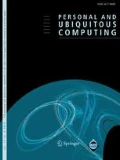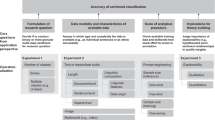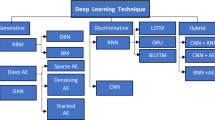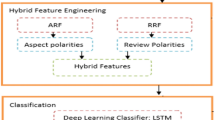Abstract
At present, we live in prosperity contrary to the past times. As income increases, people enjoy wealth, but more people tend to pursue their own inner happiness: travel. People go to other places or visit foreign countries for business or journey. This study aims to identify the best tour route for foreign tourists in South Korea. Based on the review analysis results, this paper also aims to put forward techniques and methodologies required in practical affairs when developing a travel site or a travel application. On this note, it collected tourists’ reviews at the Tripadvisor official website and conducted text mining technique as well as network analysis using R and Tagxedo, which is a big data analytic tool. The analysis results displayed that there were differences in travel preference, and especially, individual travelers had difficulty traveling by public transportation and selecting travel destinations. Therefore, customized travel routes were suggested for convenient use among travelers.
















Similar content being viewed by others
References
Jin H, Miao Y, Jung JR, Li D (2019) Construction of information search behavior based on data mining. Pers Ubiquit Comput:1–13. https://doi.org/10.1007/s00779-019-01239-8
Li G, Park EM, Jin SJ (2019) The impacts of personal traits on knowledge discovery behaviors via mobile SNS. Pers Ubiquit Comput:1–12. https://doi.org/10.1007/s00779-019-01240-1
Park ST, Li G, Hong JC (2018) A study on smart factory-based ambient intelligence context-aware intrusion detection system using machine learning. J Ambient Intell Humaniz Comput:1–8. https://doi.org/10.1007/s12652-018-0998-6
Park ST, Oh MR (2019) An empirical study on the influential factors affecting continuous usage of mobile cloud service. Clust Comput 22(1):1873–1887
Bergman O, Yanai N (2018) Personal information retrieval: smartphones vs. computers, emails vs. files. Pers Ubiquit Comput 22(4):621–632
Gavalas D, Kasapakis V, Konstantopoulos C, Pantziou G, Vathis N (2017) Scenic route planning for tourists. Pers Ubiquit Comput 21(1):137–155
Karahasanović A, Heim J (2015) Understanding the behaviour of online TV users. Pers Ubiquit Comput 19(5–6):839–852
World Economic Forum, The Travel & Tourism Competitiveness Report 2019,https://www.weforum.org/reports/the-travel-tourism-competitiveness-report-2019. Accessed 9 Mar 2020
Lee SW, Jiang G, Kong HY, Liu C (2020) A difference of multimedia consumer’s rating and review through sentiment analysis. Multimed Tools Appl:1–18
Park ST, Kim YK (2019) A study on deriving an optimal route for foreign tourists through the analysis of big data. J Converg Inf Technol 9(10):56–63
Renjith S, Sreekumar A, Jathavedan M (2020) An extensive study on the evolution of context-aware personalized travel recommender systems. Inf Process Manag 57(1):102078
Dara S, Chowdary CR, Kumar C (2020) A survey on group recommender systems. J Intell Inf Syst 54(2):271–295
Lim KH, Chan J, Karunasekera S, Leckie C (2019) Tour recommendation and trip planning using location-based social media: a survey. Knowl Inf Syst:1–29. https://doi.org/10.1007/s10115-018-1297-4
Padia P, Singhal B, Lim KH (2019) User-relative personalized tour recommendation. In IUI Workshops. http://ceur-ws.org/Vol-2327/IUI19WSUISTDA-1.pdf
Ravi L, Vairavasundaram S (2016) A collaborative location based travel recommendation system through enhanced rating prediction for the group of users. Comput Intell Neurosci:2016. https://doi.org/10.1155/2016/1291358
Park S, Park S (2016) Personalized itinerary recommendation system based on stay time. KIISE Trans Comput Pract 22(1):38–43
Hassannia R, Vatankhah Barenji A, Li Z, Alipour H (2019) Web-based recommendation system for smart tourism: multiagent technology. Sustainability 11(2):323
Kim BS, Kim KW, Park ST (2015) The improvement plan for fire response time using big data. Indian J Sci Technol 8(23):1
Park ST, Lee SW, Kang TG (2018) A study on the trend of cloud service and security through text mining technique. Int J Eng Technol 7(2.33):127–132
Park EM, Seo JH, Ko MH (2016) The effects of leadership by types of soccer instruction on big data analysis. Clust Comput 19(3):1647–1658
Park ST, Lee SW, Ko MH (2016) Industry 4.0 on keyword network analysis. J Eng Appl Sci 13(1 S1):2442–2446
Freeman L (2004) The development of social network analysis. A study in the sociology of science. 1:687. https://www.researchgate.net/publication/239228599_The_Development_of_Social_Network_Analysis
Leydesdorff L (2004) Clusters and maps of science journals based on bi-connected graphs in journal citation reports. J Document. 60(4). https://doi.org/10.1108/00220410410548144
Fronzetti Colladon A, Naldi M (2020) Distinctiveness centrality in social networks. PLoS One 15(5):e0233276
Sommeria-Klein G, Zinger L, Coissac E, Iribar A, Schimann H, Taberlet P, Chave J (2020) Latent Dirichlet allocation reveals spatial and taxonomic structure in a DNA-based census of soil biodiversity from a tropical forest. Mol Ecol Resour 20(2):371–386
Manning LJ, Hall JW, Kilsby CG, Glendinning S, Anderson MG (2008) Spatial analysis of the reliability of transport networks subject to rainfall-induced landslides. Hydrol Processes 22(17):3349–3360
NetMiner, http://www.netminer.com. Accessed 25 Aug 2020
Jung KH, Lim SM, Hong SM (2014) Study on algorithm to generate trip plans with prior experience based on users’ ratings, KIPS Tr. Softw Data Eng 3(12):537–546
Ricci F (2020) Recommender Systems in Tourism. Handb e-Tourism:1–18
Author information
Authors and Affiliations
Corresponding author
Additional information
Publisher’s note
Springer Nature remains neutral with regard to jurisdictional claims in published maps and institutional affiliations.
Rights and permissions
About this article
Cite this article
Park, ST., Liu, C. A study on topic models using LDA and Word2Vec in travel route recommendation: focus on convergence travel and tours reviews. Pers Ubiquit Comput 26, 429–445 (2022). https://doi.org/10.1007/s00779-020-01476-2
Received:
Accepted:
Published:
Issue Date:
DOI: https://doi.org/10.1007/s00779-020-01476-2




